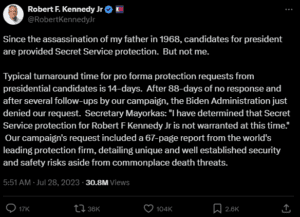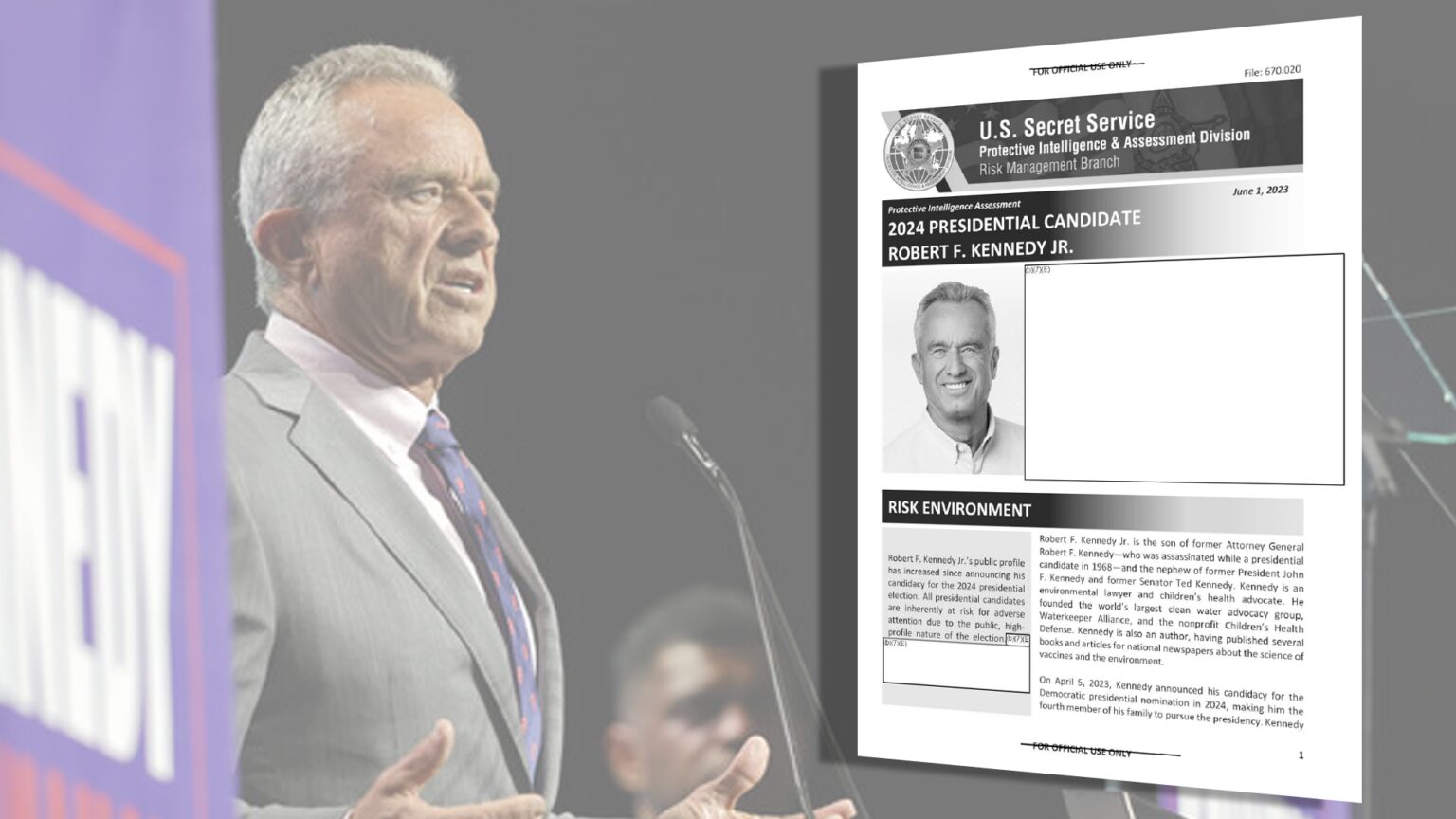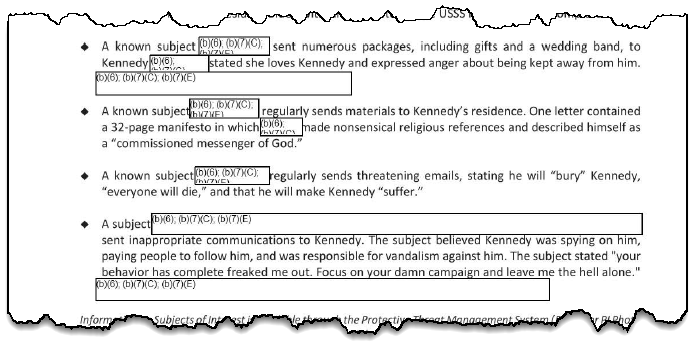The U.S. Secret Service (USSS) has released 45 pages of documents in response to a Freedom of Information Act (FOIA) request filed by The Black Vault. These records reveal new insights into the process and deliberations surrounding Robert F. Kennedy Jr.’s request for Secret Service protection during his 2024 presidential campaign.
 Kennedy’s campaign first submitted a formal request for Secret Service protection on May 24, 2023, citing heightened threats against the candidate. The request included a comprehensive risk assessment compiled by a private security firm. This 67-page report, referenced in a July 28, 2023, tweet by Kennedy himself, detailed specific threats and emphasized the unique vulnerabilities he faced as a member of the Kennedy family. Despite the comprehensive nature of the report and the candidate’s well-documented risk factors, the USSS and the Department of Homeland Security (DHS) initially declined to provide protection. That decision had come under scrutiny.
Kennedy’s campaign first submitted a formal request for Secret Service protection on May 24, 2023, citing heightened threats against the candidate. The request included a comprehensive risk assessment compiled by a private security firm. This 67-page report, referenced in a July 28, 2023, tweet by Kennedy himself, detailed specific threats and emphasized the unique vulnerabilities he faced as a member of the Kennedy family. Despite the comprehensive nature of the report and the candidate’s well-documented risk factors, the USSS and the Department of Homeland Security (DHS) initially declined to provide protection. That decision had come under scrutiny.
The documents released by the USSS include detailed risk assessments, correspondence between government officials, and internal deliberations. They paint a picture of a candidate whose circumstances were anything but ordinary. Kennedy’s family history of political assassinations—his father, Robert F. Kennedy, was assassinated in 1968 while running for president, and his uncle, President John F. Kennedy, was assassinated in 1963—served as a critical factor in his campaign’s request for protection. The records note that Kennedy’s public profile as a Democratic challenger to President Joe Biden further exacerbated the risks, drawing both support and hostility from various factions.
One document highlights specific threats identified by the USSS Protective Intelligence Division. These included explicit threats of violence, harassment from known individuals, and alarming behaviors that suggested potential harm. One letter detailed how a known individual had sent Kennedy numerous threatening emails, including messages stating they would “bury” him and make him “suffer.” Another assessment described how a different individual, who had previously sent nonsensical letters to President Biden, redirected their focus to Kennedy’s campaign events. Despite these documented threats, the USSS initially concluded that Kennedy’s circumstances did not meet the threshold for granting protection under DHS guidelines.
The DHS guidelines for authorizing Secret Service protection are rigorous, requiring candidates to meet several criteria. These include polling at 15% or higher in national polls for 30 consecutive days, actively campaigning on a national level, and facing credible threats. In Kennedy’s case, his polling numbers hovered near the threshold but did not consistently meet the benchmark. Additionally, the DHS guidelines emphasized that protection granted more than a year before a general election should only occur under extraordinary circumstances.
The Decision to Grant Protection
In July 2024, Robert F. Kennedy Jr. was finally granted Secret Service protection, but not due to the routine evaluation of his candidacy or an increase in threats alone. Instead, the decision came in the wake of an attempted assassination on former President Donald Trump, an event that dramatically shifted the national security landscape and prompted heightened concerns about the safety of public figures. According to the documents released under FOIA, President Joe Biden himself intervened, requesting Secret Service protection for Kennedy as the political climate grew increasingly volatile.
The below documents were released by the Secret Service on December 9, 2024. It appears that multiple attachments were not included in the FOIA release, despite being specifically requested. An appeal has been filed, and the results of that will be posted here, when available.
Document Archive
 FOIA Documents Detail Delays and Decisions in Secret Service Protection for Robert F. Kennedy Jr. [48 Pages, 5.2MB]
FOIA Documents Detail Delays and Decisions in Secret Service Protection for Robert F. Kennedy Jr. [48 Pages, 5.2MB]
